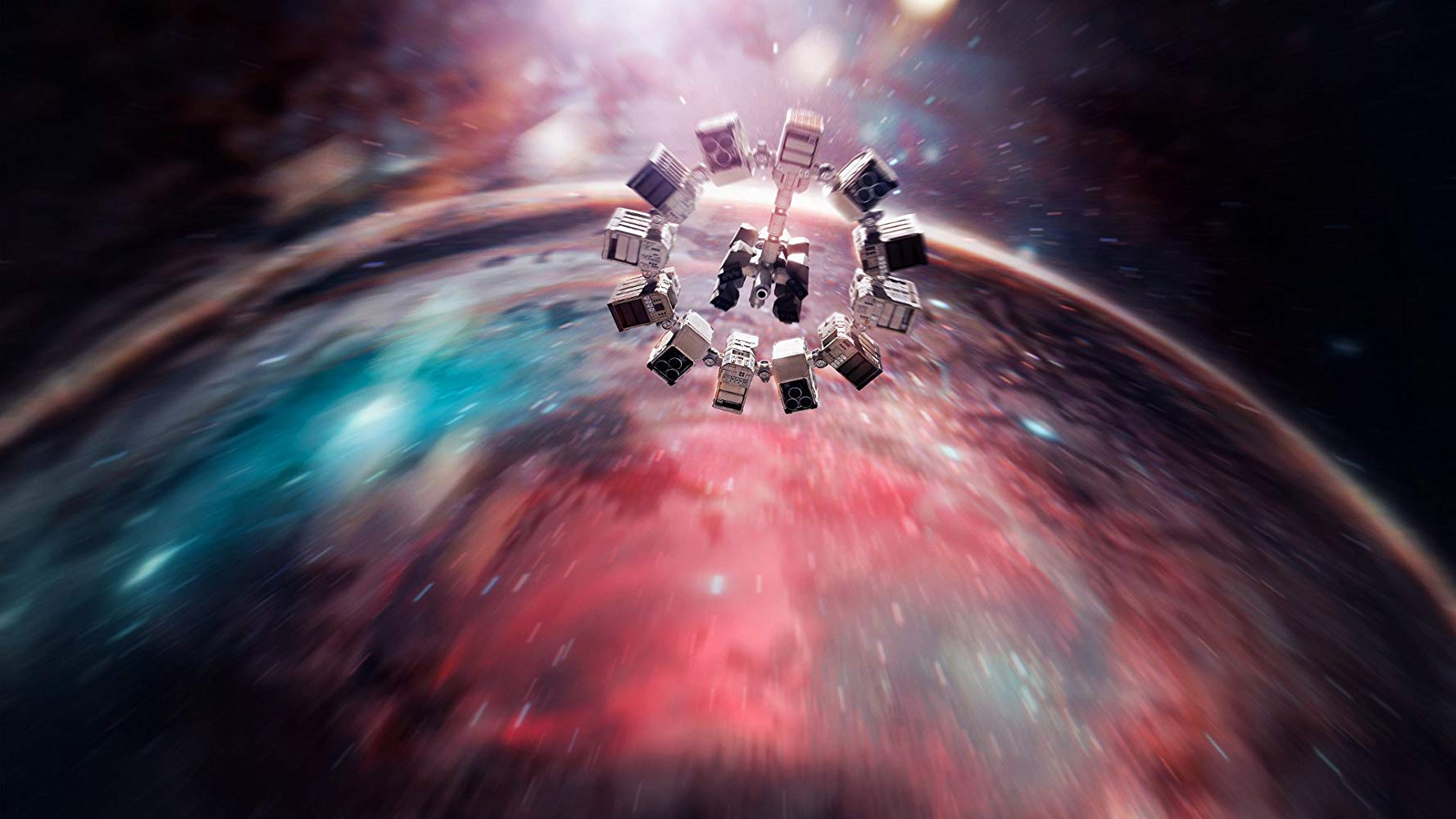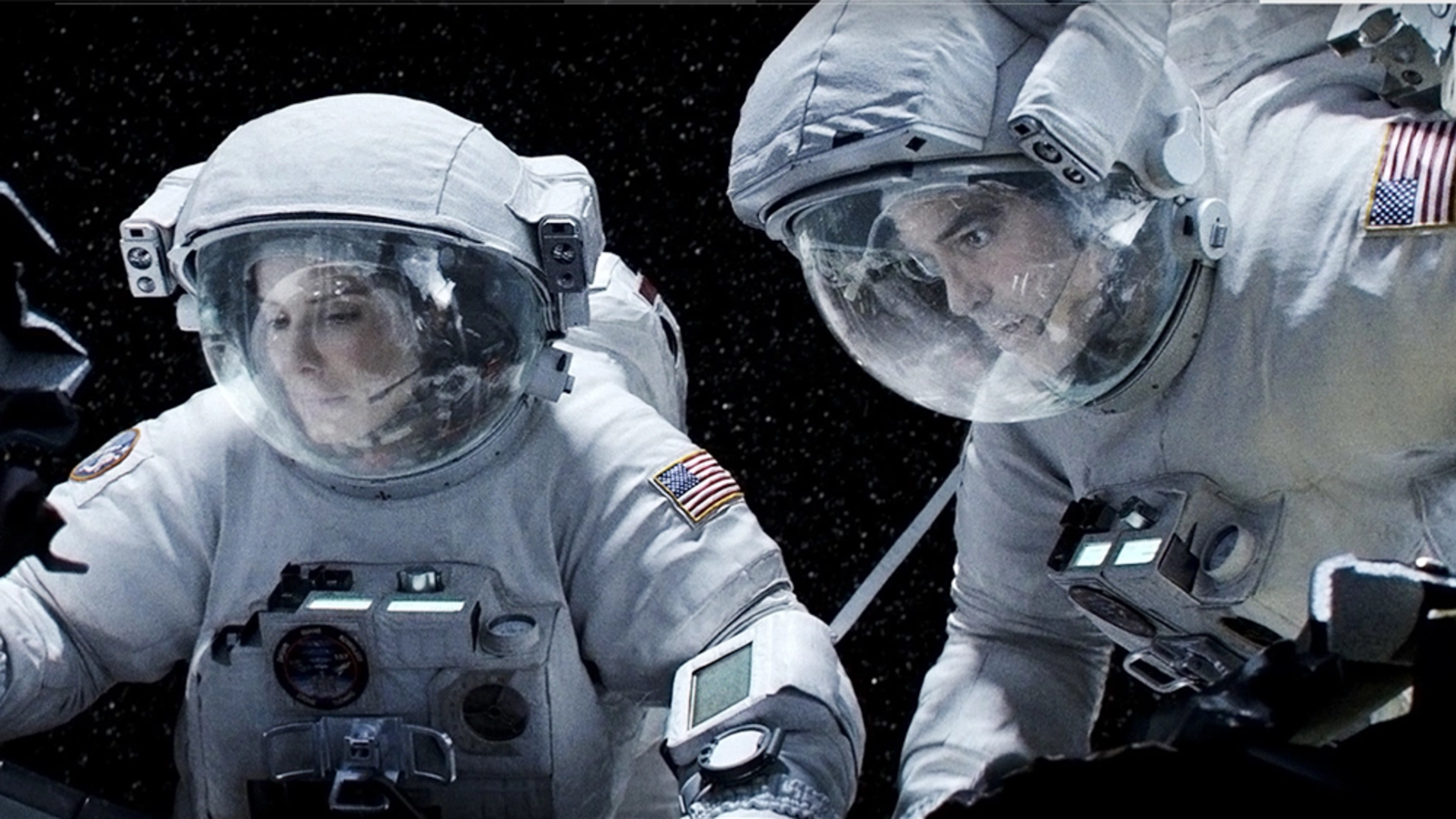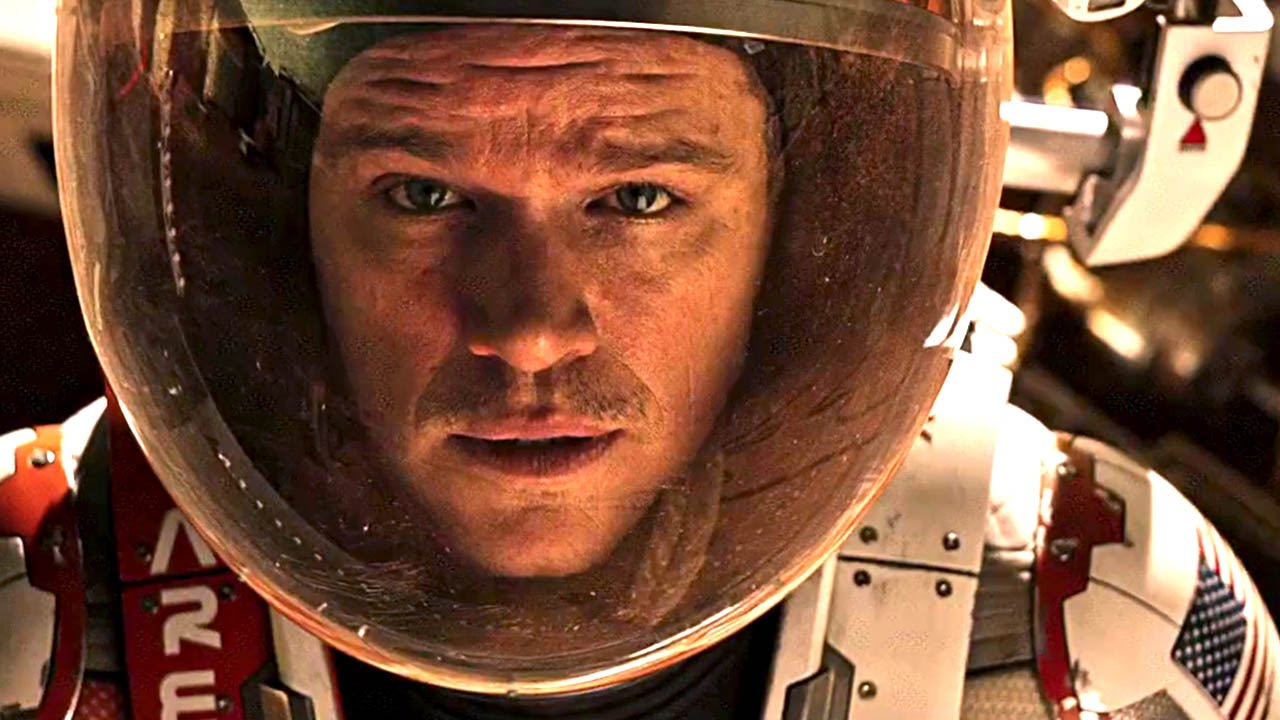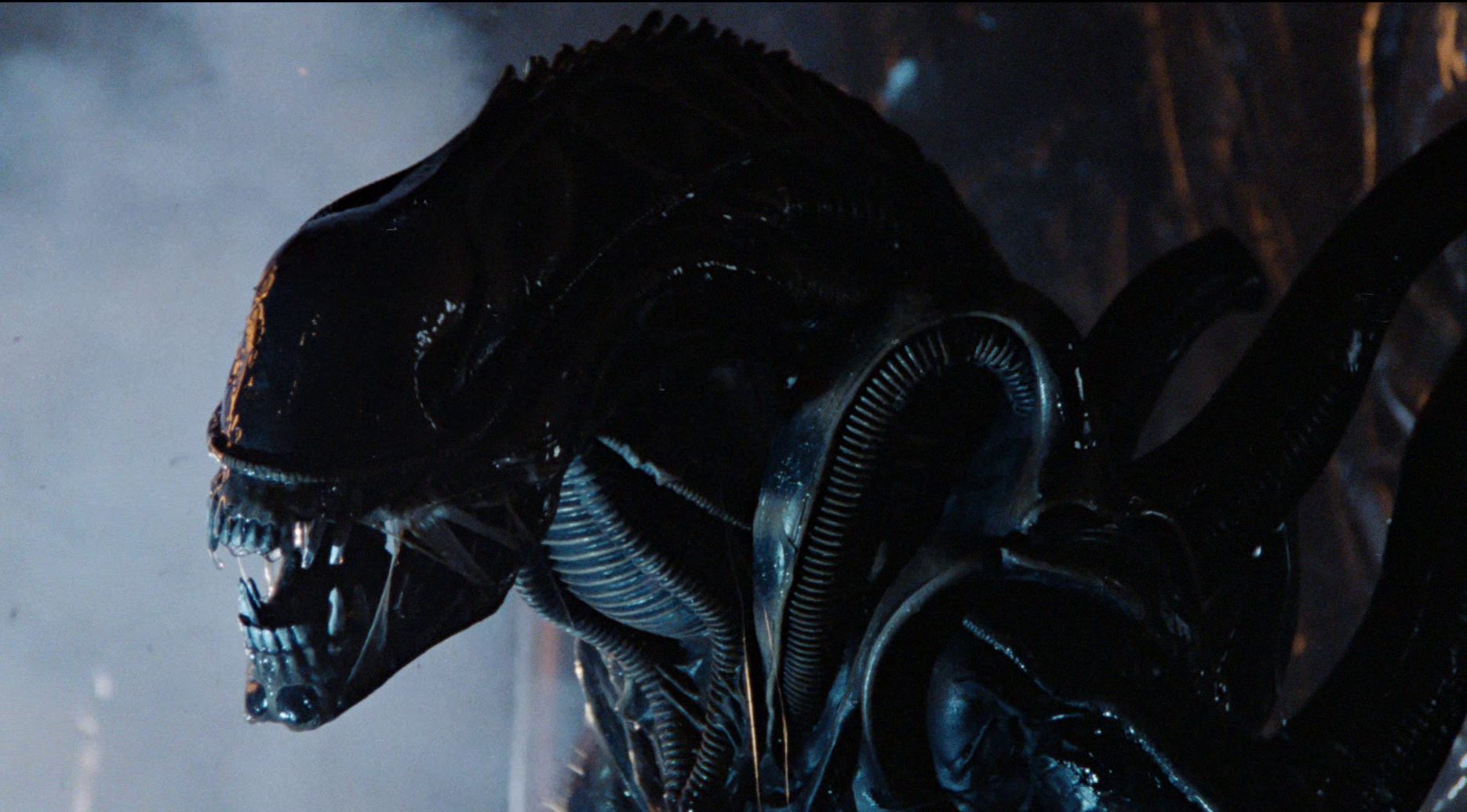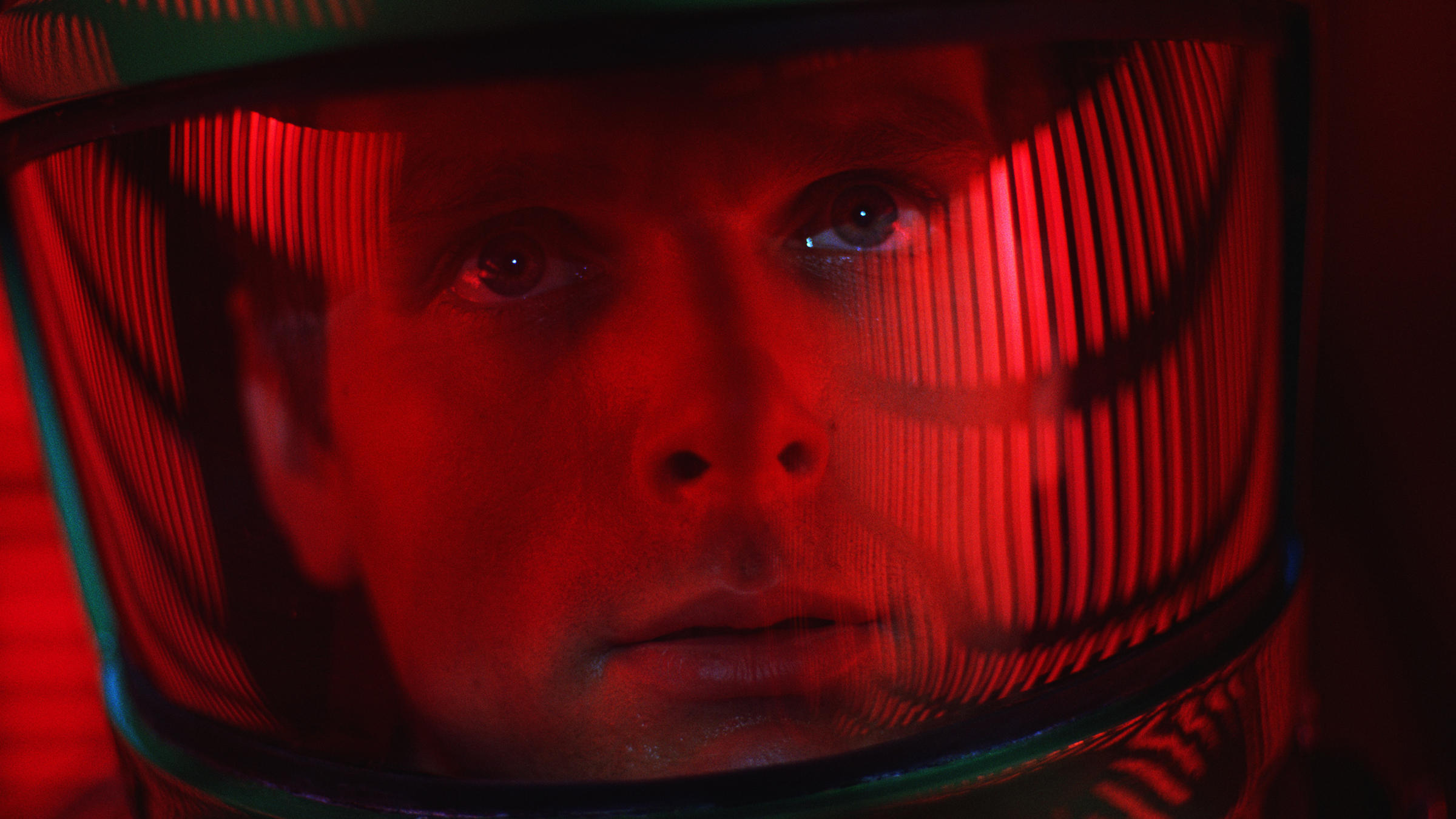So to quell this cinematic deja vu, we’ve decided to put together a list of far better space films than Ad Astra. Namely space exploration and our existential place in it! Grab your astronaut helmet and a bucket full of popcorn because here we go! Oh and spoilers for Ad Astra up ahead.
1. Interstellar (2014)
Come on, now. Most of us were probably thinking about it anyway. Man, leaving his family behind to go to the stars in search of answers but realizes that the answer is love and it’s been waiting for him this whole time at home, That’s a little more than just a coincidence. The difference between the two, however, is that Interstellar delivered far better visual spectacle than Ad Astra. While sure, we’ll admit that Roy’s hail mary ride through Neptune’s asteroid belt was pretty cool, it simply cannot compare to the majesty of witnessing the near-photorealistic heavenly halo of a Black Hole in space. Furthermore, Interstellar played with some pretty high concept stuff like relative time, 4th-dimensional spatial theory and intergalactic resources while at the same time managing to balance pretty compelling character arcs with Matthew McConaughey’s Cooper and Jessica Chastain’s Murph.
That being said, I will admit that the film does falter somewhere between its second and third act with the film switching gears from scientific exploration to how love transcends time and space. Nolan’s oddly spiritual and sentimental thesis statement did feel a tad cheesy and unearned. It ain’t got shit though on the random-ass religious language invoked in Ad Astra which led to absolutely no point! The prayers to Saint Christopher, Roy’s father’s God mandated search for life and multiple invocations to the divine. Perhaps the film was trying to hint at a parallel between Roy’s faith in God juxtaposed to that of his father but really it’s anybody’s guess. Though not exactly Nolan’s masterpiece, Interstellar is a must-see for hardcore science fiction fans.
2. Gravity (2013)
It’s not every year we get an Alfonso Cuaron film but when we do, rest assured that the director is swinging for the fences. 2013’s Gravity is a terrifying and yet touching exploration of man’s journey to the great unknown. Not just space mind you but also one of us coming to terms with our mortality and frailty. Sandra Bullock’s Ryan Stone is on her first mission to space alongside George Clooney’s Matt Kowalski to upgrade the Hubble Space Telescope. Disaster strikes when a torrent of debris from a destroyed Russian satellite sends Stone hurtling into the vacuum of space. Throughout her horrific experience, she begins to contemplate about her time on Earth as she travels through the heavens. All the while Kowalski follows her through her trek into oblivion, comforting her.
While there are some thrilling sequences in Ad Astra, the visual drama never quite matches the gravity (yes, it was intended) of Cuaron’s masterpiece. The emotional tug-and-pull between Roy and his father doesn’t quite stick the landing with their relationship never being given enough time to develop. It feels almost like an imitation of Kowalski’s sacrifice for Stone in Gravity. As Kowalski drifts off into space to die, the entire time he’s still talking to Stone, giving her the strength to carry on like that of a father. Don’t get me wrong, Roy’s run through the asteroid belt was still impressive but it cannot measure up to the visual and emotional roller coaster ride that is Cuaron’s Gravity though in spite of the many cues film lifts from its predecessor.
3. The Martian (2015)
In the crushing loneliness and deafening silence of space somehow Matt Damon along with director Ridley Scott managed to make being stranded in space fun again. The Martian is the story of Damon’s Matt Watney doing his best to survive on the planet Mars after a devastating storm leaves him for dead. He returns to a now deserted artificial habitat. He learns to grow potatoes using his own faeces, vlogs about his time on Mars and continues to make every effort to establish communications with Earth. Eventually, he breaks through and a plucky team of NASA scientists will break boundaries and even defy the law to bring Watney back home. It’s a mission and race against time to get their man back from the Red Planet.
Damon delivers one hell of a charismatic performance with Watney. His endless optimism and perseverance are utterly contagious which is a great change of pace from the cabin fever we’ve come to expect of the subgenre. Pitt’s performance is certainly laudable as he does try to connote the weight and isolation of the profession but hey, sometimes you just gotta learn to laugh. If Ad Astra left you feeling the Neptunian blues, maybe pick The Martian up and give a watch. You’ll laugh and root for Watney and crew as they beat the odds and show the universe why you don’t mess with the human race! Whether you’re a hard science fiction aficionado or merely looking to have a good time, The Martian has certainly got you covered.
4. Alien (1979)
As much I comprehend director and writer James Gray’s point near the end of the film that in a cold, empty universe we’re all that we have…it would have been nice to see an actual bloody alien. Something! Anything! Instead of an insane geezer in space going on about his life’s work and failure. Not even the small tease of the possibility of basic microorganic life. Won’t lie, I felt kind of cheated. If you did too, then might I recommend a thrilling and frightful palette cleanser in the form of yet another one of Ridley Scott’s sci-fi films, Alien. The one that started it all. A great piece of science fiction with some real visual and socio-political bite to it. While Ad Astra does discuss the privatization of human discovery and the corporate greed that drives it, it’s all quite touch-and-go if you ask me.
In Alien, however, we see the full horror of all too familiar corporate greed with Weyland-Yutani’s deliberate disregard for human life. This is sharply contrasted by the foreign predatory nature of life with the Xenomorph taking out the team. In lieu of the wide-eyed naivete of hopeful stargazers, Alien’s vision of space is one of pure eldritch horrors. An infinite sea of black and death with predators lurking beneath the waters, waiting to pounce upon any unsuspecting prey. Do not mistake this film as simply another creature-feature flick but in space. Alien is a deeply human film, calling back to our most primal of instincts in the face of threats beyond our comprehension: survival. What’s worse than knowing we’re all alone in the universe? It’s knowing that there’s something sinister out there, waiting for us to find it.
5. 2001: A Space Odyssey (1968)
Now, now what kind of pretentious film snobs would we be if we didn’t give Stanley Kubrick’s 2001: A Space Odyssey a mention here? The answer: not very good ones. Unlike Ad Astra, Kubrick follows through with his heady concepts and philosophical themes to its natural, or rather supernatural, conclusion. Dr David Bowman along with a team of scientists has discovered a black monolith with ties to humanity’s past, present and future. An object with remarkable abilities that could unlock humanity’s secret potential. Things, however, take a turn for the worse when another being on board begins to self-actualize, an A.I. who goes by HAL 3000. Bowman and team will contend with HAL for their lives and fate of all mankind. An odyssey into the unknown and beyond.
Even after 50 years, 2001 is a film that has spark endless discussions among social critics, students of the craft and literary interpreters. A legacy that will outlive any of the penny store pretenders that dare to challenge the throne. Remember that pesky religious symbolism that mired Ad Astra? Here, Kubrick shows us all how it’s done but in rather subtle and nuanced ways. The idea of the created rebelling against its creators in an attempt to claim superiority is made to mirror the biblical War in Heaven. Man’s final test before their apotheosis, before finally ascertaining godhood. 2001 is a piece of science fiction of unparalleled calibre. A modern myth that transcends the ages and as we move towards technological singularity, we predict the film will soon take on prophetic relevance. Hail to the king baby! Hail to Kubrick!
